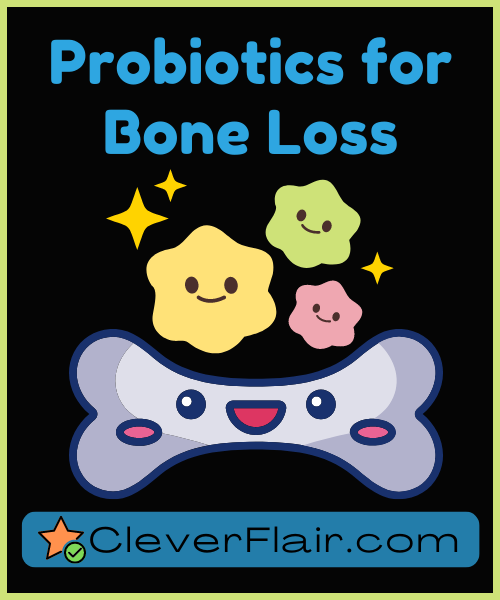
Have you heard about probiotics for bone loss? Women who are in the stage of menopause will be benefited from this dietary supplement.
You may have heard of probiotics before — they’re the “good” bacteria that help keep your gut healthy. But did you know that probiotics can also help with bone loss? This is good news, particularly for menopausal women.
Here’s what you need to know about probiotics and bone loss.
What is Bone Loss?
Before we dive into the specifics of probiotics for bone loss, let’s first take a step back and talk about what bone loss actually is.
Bone loss is a process where the minerals in your bones start to break down faster than your body can replace them. This can lead to fragile bones that are more susceptible to breaks and fractures.
Bone loss is a natural part of aging, but it can be accelerated by certain health conditions, medications, and lifestyle factors.
How Probiotics Can Help for Bone Loss
Now that we know a little bit more about bone loss, let’s talk about how probiotics can help.
Probiotics are live bacteria that are similar to the “good” bacteria that naturally live in your gut. They are often called “friendly” or “beneficial” because they help keep your gut healthy by maintaining the balance of good and bad bacteria.
Probiotics may help improve calcium absorption, which is essential for strong bones. They may also reduce inflammation, which has been linked to bone loss.
How Probiotics Reduce Bone Loss
Osteoporosis is a condition that causes bones to become weak and brittle. It is often found in postmenopausal women due to the decrease in estrogen levels. It occurs when the body breaks down bone faster than it can rebuild it. Probiotics can improve bone health by increasing calcium absorption and reducing inflammation.
A study done on rats found that those given probiotics had increased bone density and strength compared to those who did not consume probiotics.
The probiotic group also had higher levels of osteocalcin, which is a hormone needed for bone formation, and lower levels of cytokines, which are proteins that cause inflammation.
These results suggest that probiotics may help prevent osteoporosis in menopausal women.
Probiotic-Rich Foods
There are many different types of probiotics, but the most common ones are Lactobacillus and Bifidobacterium. These can be found in yogurt, kefir, sauerkraut, kimchi, miso soup, pickles, and tempeh. You can also take probiotic supplements (such as protein powder with probiotics) if you want to make sure you’re getting enough.
If you’re a menopausal woman concerned about osteoporosis, consider adding probiotics to your diet. Probiotics are a type of beneficial bacteria that live in our gut and have many health benefits. They can aid in weight loss, improve skin health, boost immunity, and reduce bone loss.
Probiotics Main Points
Probiotics work by increasing calcium absorption and reducing inflammation. You can find them in fermented foods like yogurt, kefir, sauerkraut, kimchi, miso soup, pickles, and tempeh.
You can also take probiotic supplements to ensure you’re getting enough. Adding probiotics to your diet may help prevent osteoporosis and keep your bones healthy as you age.
